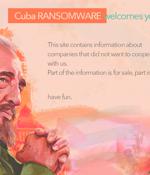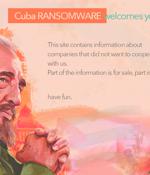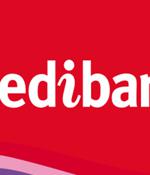Security News

A new ransomware gang named 'Money Message' has appeared, targeting victims worldwide and demanding million-dollar ransoms not to leak data and release a decryptor. While investigating, BleepingComputer has seen evidence of a potential Money Message breach on a well-known computer hardware vendor.

Crown Resorts, Australia's largest gambling and entertainment company, has confirmed that it suffered a data breach after its GoAnywhere secure file-sharing server was breached using a zero-day vulnerability. This data breach was conducted by the Clop ransomware gang, which has shifted over the past year from encrypting files to performing data extortion attacks.

Ferrari has disclosed a data breach following a ransom demand received after attackers gained access to some of the company's IT systems."We regret to inform you of a cyber incident at Ferrari, where a threat actor was able to access a limited number of systems in our IT environment," Ferrari says in breach notification letters sent to customers.

In brief The notorious LockBit ransomware gang has taken credit for an attack on the Royal Mail - but a deadline it gave for payment has come and gone with nothing exposed to the web except the group's claims. LockBit even published a page bragging of an attack against fintech firm ION without directly acknowledging the Royal Mail attack earlier this week - though that's now changed, according to Reuters.

Riot Games says it will not pay the ransom demanded by the attackers responsible for the security breach the company disclosed last week. "While we hope some of these game modes and other changes eventually make it out to players, most of this content is in prototype and there's no guarantee it will ever be released," Riot Games said.

The threat actors behind Cuba ransomware have received more than $60 million in ransom payments and compromised over 100 entities across the world as of August 2022. In a new advisory shared by the U.S. Cybersecurity and Infrastructure Security Agency and the Federal Bureau of Investigation, the agencies highlighted a "Sharp increase in both the number of compromised U.S. entities and the ransom amounts."

The threat actors behind Cuba ransomware have received more than $60 million in ransom payments and compromised over 100 entities across the world as of August 2022. The ransomware crew, also known as Tropical Scorpius, has been observed targeting financial services, government facilities, healthcare, critical manufacturing, and IT sectors, while simultaneously expanding its tactics to gain initial access and interact with breached networks.

The Ukrainian CERT has uncovered an attack campaign aimed at compromising Ukrainian organizations and irretrievably encrypting their files. To do that, they are leveraging a specific version of the Somnia ransomware that, "According to the attackers' theoretical plan, does not provide for the possibility of data decryption."

Australian health insurer Medibank today confirmed that personal data belonging to around 9.7 million of its current and former customers were accessed following a ransomware incident. "This figure represents around 5.1 million Medibank customers, around 2.8 million ahm customers, and around 1.8 million international customers," Medibank noted.

Australian health insurance provider Medibank has announced it won't be paying the ransom to the criminal(s) who stole data of 9.7 million of its current and former customers. "Based on the extensive advice we have received from cybercrime experts we believe there is only a limited chance paying a ransom would ensure the return of our customers' data and prevent it from being published. In fact, paying could have the opposite effect and encourage the criminal to directly extort our customers, and there is a strong chance that paying puts more people in harm's way by making Australia a bigger target," the company said.